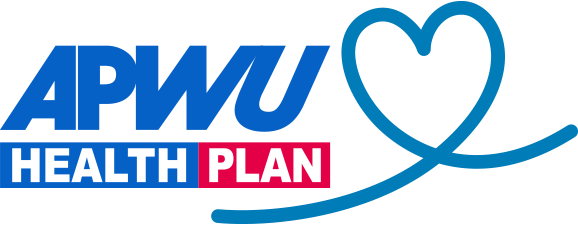Whether you experience intense pounding pain that comes on suddenly or a dull ache that lasts for days, a headache can slow you down and cause you to miss work. Stress, certain foods, and changes in your sleep pattern often result in a headache, but in some cases there’s no clear cause. Here are some tips on relieving your discomfort and reducing your chances of getting a headache in the first place.
Types of headaches
Knowing what type of headache you suffer from is the first step toward effective treatment.
Tension headaches, the most common type, cause a persistent ache and sensations of tightness. You may feel pressure across your forehead, along the sides or back of the skull, or in the middle of your head.
Sinus headaches involve pain behind your eyes and nose, accompanied by nasal congestion.
Cluster headaches begin quickly and lead to severe, intense pain within minutes. The pain may be focused around one eye or one side of the head. They can occur on and off for weeks at a time, stop for several months, and then return for seemingly no reason. Other symptoms may include tearing or nasal congestion.
Migraine headaches cause severe, throbbing pain, often on one side of your head, that lasts from four to 72 hours. Additional symptoms include nausea, vomiting, and increased sensitivity to light and sound.
In some cases, a headache may be a symptom of another underlying disease or condition, such as high blood pressure.
Taking pain relievers for headaches
Over-the-counter medications—including aspirin (Bayer, Bufferin), ibuprofen (Advil, Motrin), acetaminophen (Tylenol), or naproxen (Aleve)—may relieve the pain associated with a tension headache. Be sure to read the label, take the recommended dosage for your age, and avoid harmful interactions with other supplements and medications.
Don’t give children under age 16 aspirin without consulting your doctor or pediatrician. In rare instances, kids can develop a condition called Reye’s syndrome if they take aspirin when they have a viral illness.
Home and natural remedies for headache pain
Stay hydrated. Dehydration can cause you to get a headache, so be sure to drink the recommended amount of water each day. To stay hydrated, carry a water bottle throughout the day and eat foods high in liquid, including fresh fruits, smoothies, and plain yogurt.
Apply a cold or warm compress. Soothing your forehead and neck with a cold compress can help constrict the blood vessels and reduce inflammation, which may relieve headache pain. If you feel a sensation of tightness, a warm compress may help relax your muscles and provide relief.
Try acupuncture. This form of traditional Chinese medicine can be an effective way to prevent or reduce the frequency of tension headaches and migraines. It involves trained practitioners placing small needles into the skin’s surface in an effort to stimulate your body’s own energy.
Practice self-massage. When you’re under stress, massaging pressure points in your temples, bridge of the nose, and jaw can help relieve tension and reduce headaches. Rubbing the area between your eyebrows and your neck near the base of the skull may also provide relief.
Explore relaxation techniques. In addition to reducing stress and anxiety, learning how to practice relaxation techniques can help relieve headache symptoms. Techniques include deep breathing, mindfulness meditation, and yoga.
5 tips for headache relief
- Eat a healthy diet. Processed foods, including meats high in nitrates, sugary foods, chocolate, aged cheeses, and gluten, may trigger headaches in some people. Preservatives, artificial colors, and seasonings can also be a problem. Changing your diet and taking steps to cut back on junk food may help relieve headache pain.
- If you often get headaches after a meal, keep a food journal and record what you eat each day. This will make it easier for you to identify and avoid foods that may trigger headaches.
- Whether or not you suffer from headaches, eating a healthy diet rich in nutritious fruits and vegetables, whole grains, lean proteins, and low-fat dairy is good for your overall health.
- Exercise regularly. Physical activity is a natural way to relieve tension that can cause headaches. It also promotes better circulation and releases feel-good endorphins that block pain signals to the brain.
- How much exercise do you need? Healthy adults should try to spend less time sitting and be active most days of the week. Aim for at least 30 minutes of moderate aerobic activity—such as brisk walking or riding a bike—five days a week. Include muscle-strengthening activity at least two days per week.
- If you haven’t exercised for a while or have a chronic condition, check with your doctor to find out what types and amounts of activities are right for you.
- Get enough sleep. Good quality sleep plays an important role in your physical and mental health, and most adults need seven to nine hours of sleep per night. While lack of sleep can trigger headaches, sleeping too much can worsen your symptoms.
- If you find it difficult to fall asleep or stay asleep, take steps to avoid insomnia and get the rest you need, like establishing a regular sleep rhythm that supports your biological clock. Try to go to bed and get up at the same time each day and follow these 9 tips for better sleep.
- Limit caffeine and alcohol. Consuming too much caffeine raises your blood pressure and can trigger a headache. While small amounts of caffeine can help prevent a headache, energy drinks, sweetened beverages, and coffee are often very high in caffeine. Most adults should aim for no more than 400 milligrams of caffeine per day.
- Many people who have chronic headaches are sensitive to alcohol. If you drink, limit your alcohol intake to no more than a drink or two and follow the Centers for Disease Control and Prevention’s dietary guidelines for alcohol for adults of legal drinking age. Remember, alcohol can dehydrate your body and result in headache pain along with other symptoms of dehydration, including dizziness and a dry mouth.
- Find healthy ways to manage stress. It’s a leading cause of headaches, so make time for activities that reduce stress and restore calm to your life. For some, that may mean scheduling time with friends or taking a yoga class, while others may prefer to stay home and read a book or watch a movie. Also, be sure to set boundaries and allow yourself to say no. You can’t do everything for everyone.
When to see a doctor for a headache
If you have frequent headaches, or if the pain lasts for more than a day, talk with your doctor or healthcare provider about treatment options that can make a difference. If headaches interfere with daily activities or cause you to miss work, it’s time to see a doctor who can help you manage the symptoms.
Seek immediate care if you have a very severe or sudden headache or if you develop a headache after a head injury. A headache accompanied by fever, stiff neck, rash, confusion, seizure, double vision, weakness, numbness, or difficulty speaking may also be signs of a more serious condition.
Sources
Mayo Clinic Health System, 6 tips for headache relief
Mayo Clinic, Headaches: Treatment depends on your diagnosis and symptoms


